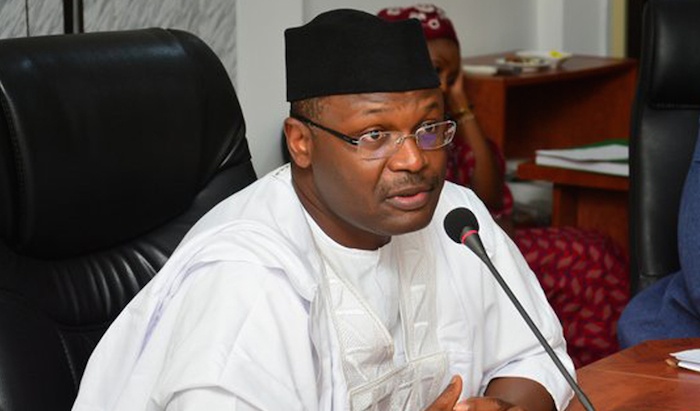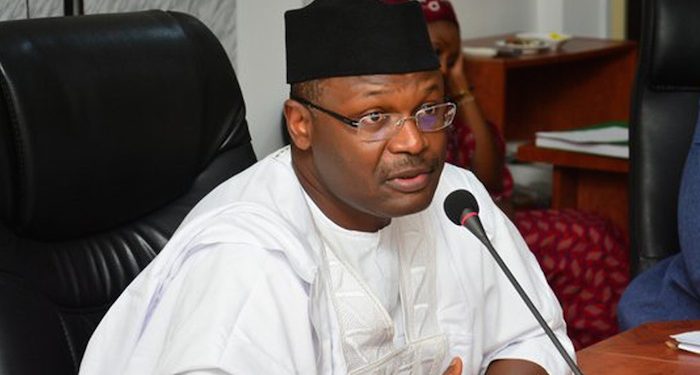The incumbent chairman of the Independent National Electoral Commission (INEC), Mahmood Yakubu, has made history as first head of Nigeria’s electoral body to get a second term in office.

Yakubu, a professor of History whose tenure as INEC chairman expires on November 9, 2020, has been nominated by President Muhammadu Buhari for a second term as the commission’s chairman
Our checks show that no chairman of the country’s electoral body has served more than one term in office.
According to available records, Eyo Esua served from 1964-1966, Michael Ani (1976-1979), Victor Whisky (1979-1983), Eme Awa (1987-1989), Humphrey Nwosu (1989-1993), Okon Uya and Sumner Dagogo-Jack (1994-1998), Ephraim Akpata (1998-2000), Abel Guobadia (2000-2005), Maurice Iwu (2005-2010), and Attahiru Jega (2010-2015).
Yakubu’s nomination for a second term was contained in a letter to Senate President Ahmad Lawan.
Buhari’s action is in compliance with the provision of Section 154 (1) of the Constitution of the Federal Republic of Nigeria, 1999 (as amended).
“I am pleased to present for confirmation by the Senate, the nomination of Mahmood Yakubu for appointment as Chairman, Independent National Electoral Commission (INEC) for a second and final term,” Buhari said in the letter.
A statement by Presidential Spokesman Femi Adesina on Tuesday recalled that Yakubu was first appointed by President Buhari in November 2015.
The former director-general of the Tertiary Education Trust Fund (TETFUND), under whose watch as INEC boss the heavily criticised 2019 general elections as well as the Bayelsa and Kogi off-season governorship polls were conducted, has recently written his name in gold following the outcome of the September 19 Edo and October 10 Ondo governorship elections.
This was sequel to the introduction of INEC RESULT VIEWING (IReV) that enabled Nigerians to view Polling Unit results real time as the voting ended in the recent polls which reduced the incidences of results manipulations.
IReV, which was first experimented in the August 8, 2020 Nasarawa Central State Constituency bye-election and subsequently the Edo and Ondo polls, according to INEC, was to further strengthen the transparency in the election result management system which has remained a major source of mistrust in Nigeria’s electoral process.
The innovation has restored some level of confidence in INEC as at the end of the Edo governorship election even the worst critics of the Commission and the electoral process, such as the Peoples Democratic Party (PDP), applauded the use of the virtual portal by INEC to upload results directly from the polling unit as it said the application made it impossible for electoral violators to hijack the electoral process.
This position was also recently buttressed by the electoral body itself at different fora even as it is making frantic efforts to achieve e-voting as evident in the recent demonstration of Electronic Voting Machines (EVMs) by 40 companies with the Commission key staff.
Also, the INEC chairman alluded to the fact that the IReV, for instance, has helped in quick collation of results and reduced manipulation in the recent polls.
According to him, “A lot has been achieved aboard with a simple application of technology. So, the encumbrances to the deployment of technology in the transmission of election results should be removed as part of this process.”
Source: Business day















